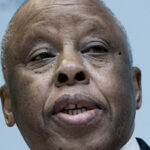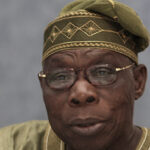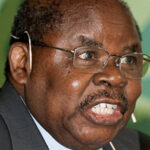The meeting reviewed development in Africa to date and the current challenges facing future development in the continent and reach the following conclusions which they share and commend to political leaders and policy makers and Africans as a whole, believing that they provide perspectives which will allow a more effective sustainable and inclusive development for the region.
The symposium in Tanzania on shared societies and inclusive sustainable development brought together influential leaders and thinkers from key regional governmental and not governmental organisations to discuss ways in which proposed principles and policy options on inclusive sustainable development can be operationalised in the African context.
A breakfast roundtable discussion with the theme of ‘Leading Change for Transformation: Experiences from African Leaders’ kicked-off the symposium on November 19th, where the former presidents imparted their respective leadership experiences in seeking to achieve inclusive economic transformation for their nations and look forward to Aftica’s future challenges and opportunities. The roundtable discussion gathered over 80 participants including politicians, senior officials and executives from the public and private sectors, and leaders from civil society.The inaugural breaksfast, co-chaired by Presidents Mkapa, Mogae and Obasanjo, was available to follow via live streaming in the website of the Club de Madrid. This session, entitled “Leading Change for Socially Inclusive Transformation: Experiences from Leaders in Africa”, took place tuesday 19th of November, from 8.00 to 9.30 a.m. (Tanzania local time, UTC/GMT +3). See video of the Breakfast session
Created with Admarket’s flickrSLiDR.
The symposium created a space for African leaders to analyse current trends in the continent on political social and economic governance and draw lessons for future development. It did this through the framework of Shared Societies, which is an approach developed by the Club de Madrid. The Shared Societies Project —through the convening power of its Members —works globally with various governments, institutions and their leaders, advising them on the best approaches to building a shared society. A shared society is one in which all individuals and constituent groups hold status as equally contributing participants, free to express their differences while integrating their voices within the broader population.
The consequences of the global economic crisis threatens democracy, social diversity and cohesion, and socio-economic development in Africa and demands rethinking of fundamental institutions, strategies and policies and the development of new approaches that can put African societies on track to open the way to a genuine African renaissance. The symposium was a first step towards establishing a continuing process of consultation and dialogue on critical issues of socio-economic and political reform in African nations.
Click here to dowload the concept note and program of the symposium



